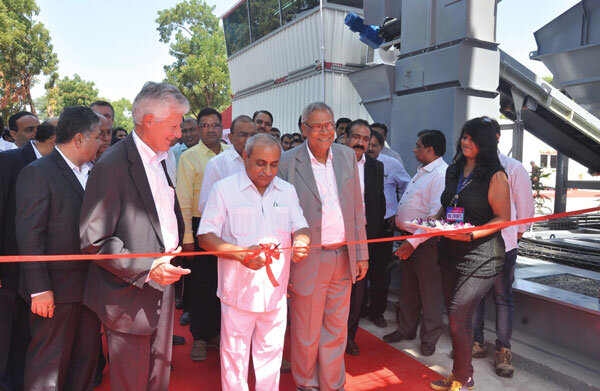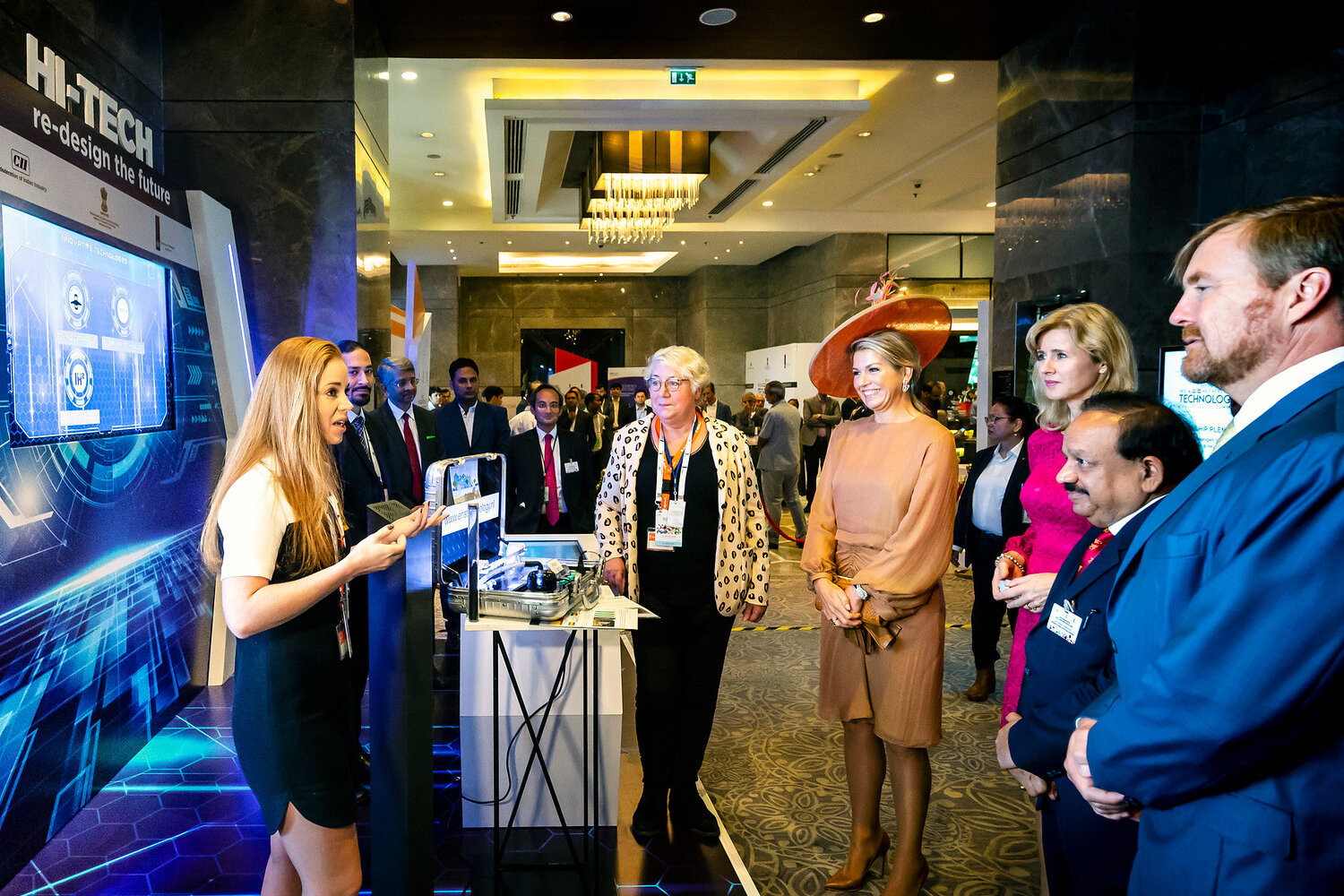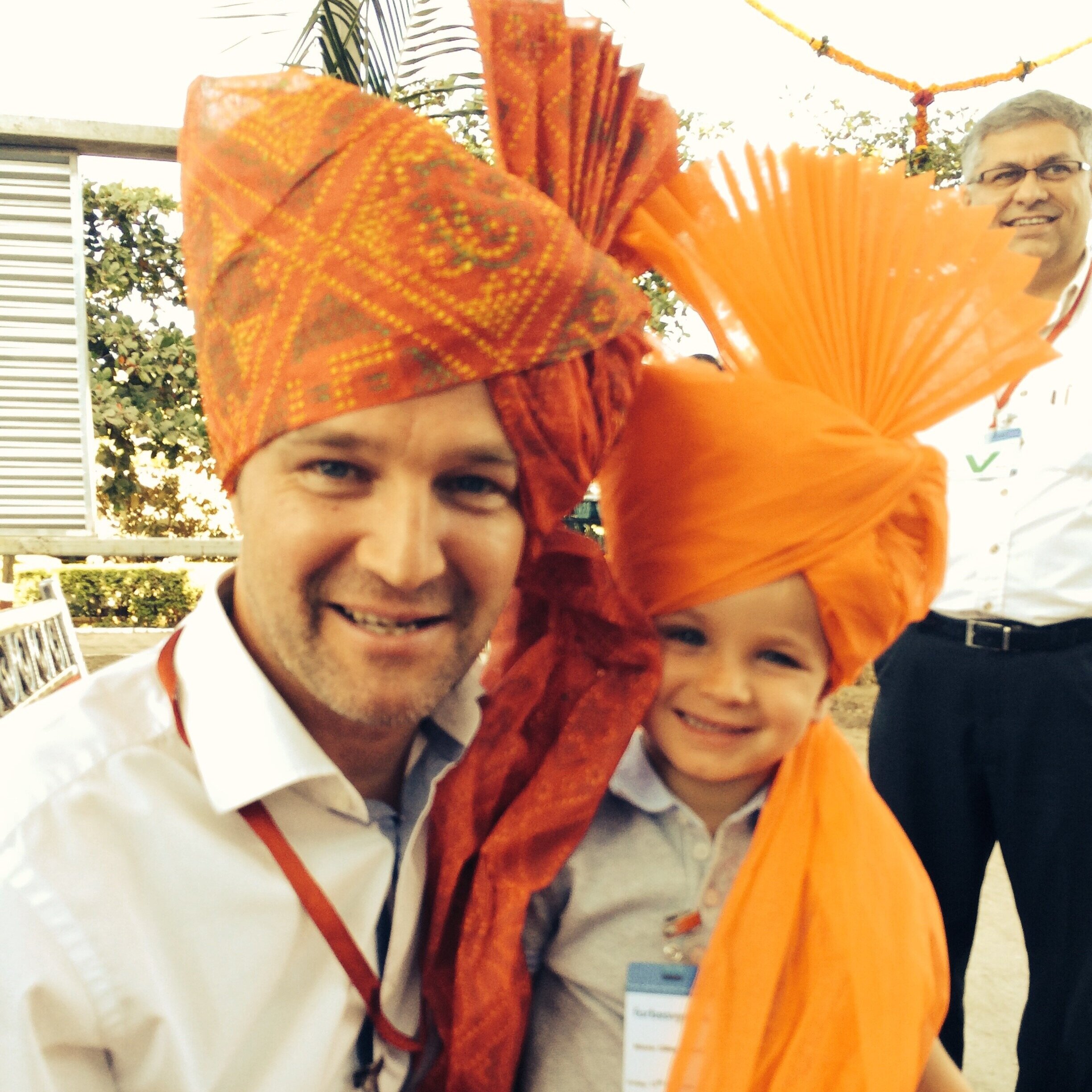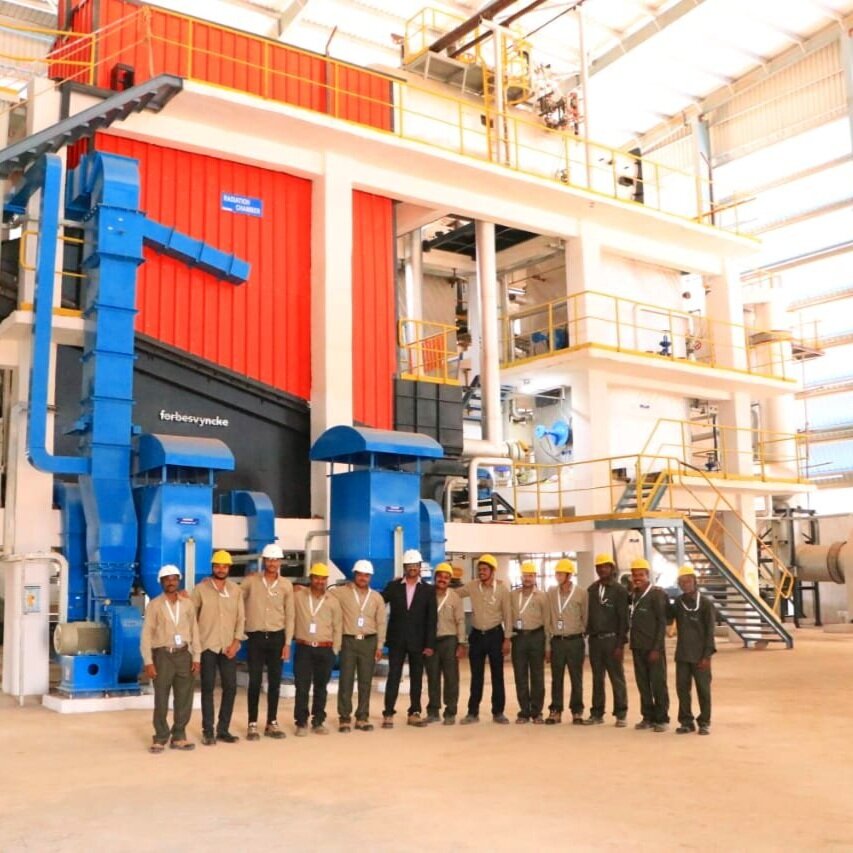The Swiss family-owned company Ammann is the world leader in construction and road building machinery. "In almost all of the 100 countries in which we operate, we have started and become successful entirely on our own," explains Rolf Jenny, Ammann's managing director in India. "Except in India. There we quickly came to the conclusion that without local knowledge and support we would never make it."
Rolf Jenny and Apollo's managing director, Asit Patel, open the joint venture's first factory
"Ammann's first steps in Asia were made in China. At the end of the 1990s, the Chinese government was extremely interested in our technology because they wanted to improve their entire road network in a short space of time. We were therefore given a warm welcome with attractive tax rates and special support programmes," says Jenny. "We didn't have to make many changes to our product in China to be successful, just a small reduction in price. That was easily solved with a local production site and we had the market in no time."
With this smooth experience in his back pocket, Ammann then set off in good spirits for the other big market in Asia: India. "There we were suddenly at a loss for words. The Indians were not interested in our advanced products and certainly not at the price we were offering them," says the managing director. "What worked great in China did not work at all in India. In India, we couldn't get away with just minor adjustments to our products, so we said to each other: 'We're not going to manage this ourselves, we need a partner who understands the Indian way of thinking'."
Know well what you have to offer an Indian partner
Ammann starts a big market research in the hope of finding a company they want to buy, but instead comes across the Indian company Apollo. At the time, Apollo was the leading producer of road building materials in India. "And that was exactly why they were interested in our technologies, but immediately said no to the idea of a possible partnership," says Jenny. "They said that they had been operating at the top end of the Indian market for 50 years and so there was no advantage in entering into a joint venture with an inexperienced European company. With this harsh rejection, they wiped out our possibility of a successful start-up in India in one fell swoop."
But the Swiss company was lucky: two years later, Apollo sought contact again and this time the Indian manufacturer was open to a joint venture. "That was the start of tough negotiations, because we didn't immediately agree on the terms of our partnership," says Swiss top executive. "Ammann is normally always a 100 per cent shareholder in the companies we set up abroad, so for us it was unmentionable to own less than 70 per cent of the joint venture. Apollo, on the other hand, wanted the shareholding to be split 50-50. We also wanted the joint venture to focus only on India, while Apollo wanted to start exporting to neighbouring countries. Once again, we were facing quite a challenge in India."
Bridging differences
In order to bridge the differences during negotiations, Jenny initially focused on the similarities between the two parties. "We are both family businesses, which immediately created a bond. We decided to invite Apollo to Switzerland to get to know our company even better and gain more insight into how we could complement each other," explains the managing director. "We are the world leader in high-tech products, Apollo in low-tech, low-cost versions. So together we could deliver a good quality product at a mid-price. By building up trust and proving that we really saw them as an equal partner, we were able to convince them of the benefits that the joint venture with us would bring them. Without compromising on our own terms."
According to Jenny, a successful joint venture rests on a number of basic principles. "You have to be able to trust each other completely and treat each other as equal partners, even in our case where we owned 70 per cent of the company. All decisions within the joint venture were always made by mutual agreement. From the very beginning, we also had it agreed what would happen if one of us wanted to leave the joint venture. A joint venture should always be equally beneficial to both parties. That is why it is so important to think not only about what a happy marriage will look like, but also about a friendly divorce if one of the two wants to go on alone."
Ending the joint venture
After eight years of running a successful joint venture together, Ammann and Apollo decided to call it a day last year. "We have learned a lot from each other over the years and have always worked well together without any disagreements. But Apollo was ready to stand on her own two feet again," says Jenny. "The 70-30 ratio meant they were more like investors than the entrepreneurs behind the business and something was starting to itch again - they wanted to get back to work." Apollo sold the remaining 30 per cent for almost 27 million to Ammann. "Not only did they get a very good deal with this sale, but they also benefited from the boom that the company has experienced in recent years. Together, we have not only increased the value of the company enormously, but also tripled its turnover. The joint venture has always been a success for both parties, despite the separation. We are therefore parting as friends and will continue to have a good relationship."
Jenny therefore recommends an Indian partner to every European company that wants to start up in India. "You can only be successful in India if you understand the wishes of the customer and if you adapt your product and price to these wishes. To do that, you have to manufacture in India, the product has to breathe India. If you are confident that you can do that on your own, then go for the adventure. In our case, we knew our products didn't fit the market, but we needed the local knowledge to understand how to improve that. If you go it alone, you have to be in it for the long haul and expect it to be a process of trial and error. We wanted a quick market entry without too many setbacks and we couldn't have done it without our great partner. So do your research and strategise accordingly, but be aware that local help makes a lot easier in India."
Opportunities in infrastructure and construction
Ammann is looking forward to the future in India. "Construction and infrastructure are two sectors that will grow significantly in India in the coming years. Indeed, more infrastructure is needed in the country if it is to maintain the same high economic growth rate in the long term," says the Ammann foreman. "But even though these sectors will offer interesting opportunities, it is important that foreign companies realise that India is not a quick fix. I have seen many international companies come and go, hoping to get a slice of the investment in the road network. But if your product doesn't fit India's needs and Indians don't trust you, you have a choice: either invest for the long term or pack up."




